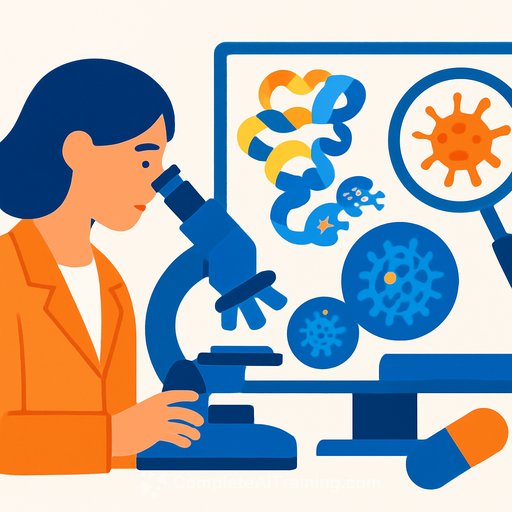UW Researchers Develop AI-Powered Method to Enhance Precision Cancer Treatment
Scientists at the University of Washington (UW) have created an AI-driven technique that could improve how cancer and other diseases are treated with precision. This approach uses artificial intelligence to engineer proteins that specifically recognize markers on diseased cells. These proteins act like biological neon signs, drawing immune cells to eliminate the harmful targets.
The breakthrough comes from the lab of Nobel laureate David Baker at UW Medicine’s Institute for Protein Design. The findings are published in the journal Science and include contributions from UW departments, Stanford University’s Garcia Lab, and Memorial Sloan Kettering Cancer Center’s Scheinberg Lab.
Enhancing Immune Detection of Diseased Cells
The immune system’s ability to detect unhealthy cells is crucial but sometimes fails to identify subtle signals of cancer or viral infection. According to Baker, computer-designed proteins can improve how human immune cells recognize and respond to the right targets.
This method holds promise for advancing precision immunotherapy, which uses drugs customized for individual patients. The key lies in how cells display their identity on their surfaces—small proteins known as peptides reveal if a cell is cancerous or infected.
AI Tools Enable Efficient Protein Design
Researchers employed AI tools, RFdiffusion and ProteinMPNN, developed by the Institute for Protein Design. These tools enable rapid and cost-effective engineering of proteins that bind to specific peptides.
These custom proteins can be incorporated into chimeric antigen receptors (CARs), engineered molecules that direct T cells—immune cells—to attack targeted diseased cells. In their experiments, proteins designed for 11 peptide targets successfully triggered T-cell responses for eight, with two causing strong enough reactions to kill targeted cells. These peptides included fragments related to HIV and tumor protein mutations.
Commercialization and Scalability
Bingxu Liu, co-lead author and postdoctoral scholar in Baker’s lab, stated the team plans to start a company to bring this technology into practical cancer therapies. The Institute for Protein Design has a history of spinning off startups, and Baker himself has co-founded 21 tech companies.
The process is adaptable: the team quickly modified one of their successful proteins to target new cancer and viral peptides using AI. This flexibility could reduce the cost and time needed to develop personalized treatments.
Accessibility and Future Impact
Graduate student Julia Bonzanini, also a co-lead author, expressed hope that this approach will lead to more accessible therapies for patients worldwide who currently lack access to advanced cancer treatments.
The research tools are open source and available to scientists globally, promoting wider adoption and further innovation in protein design.
Study Details and Contributors
The paper, titled “Design of high-specificity binders for peptide–MHC-I complexes,” includes authors Nathan Greenwood, Amir Motmaen, Jeremy Meyerberg, Tao Dao, Xinyu Xiang, Russell Ault, Jazmin Sharp, Chunyu Wang, Gian Marco Visani, Dionne Vafeados, Nicole Roullier, Armita Nourmohammad, David Scheinberg, and Christopher Garcia.
Your membership also unlocks:






